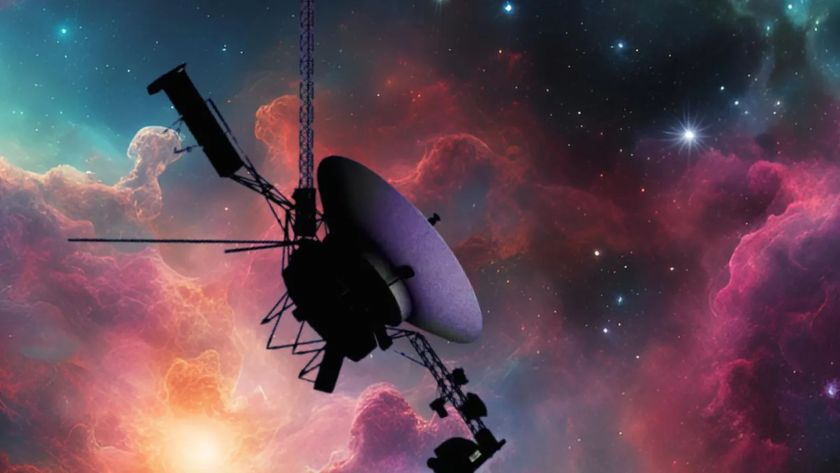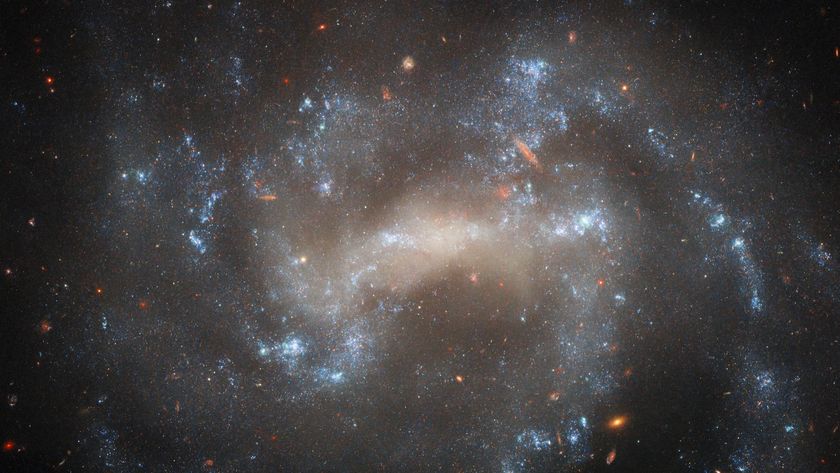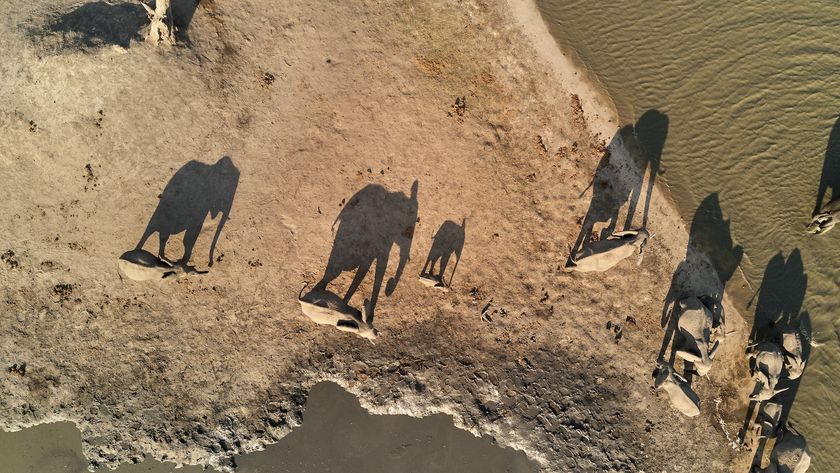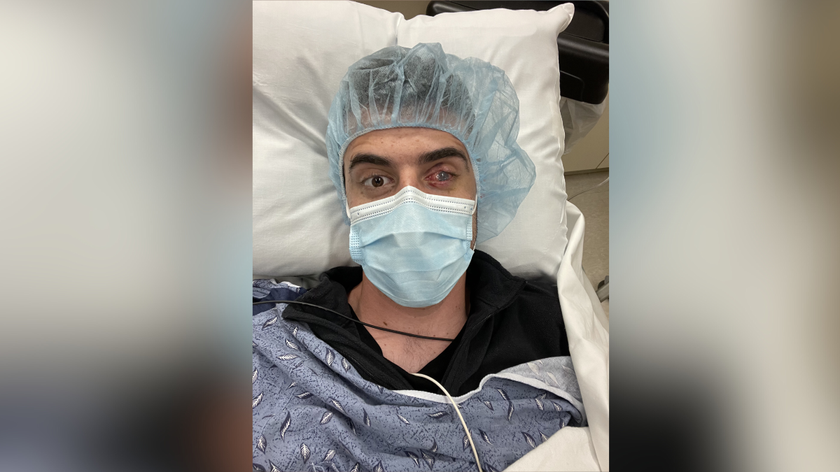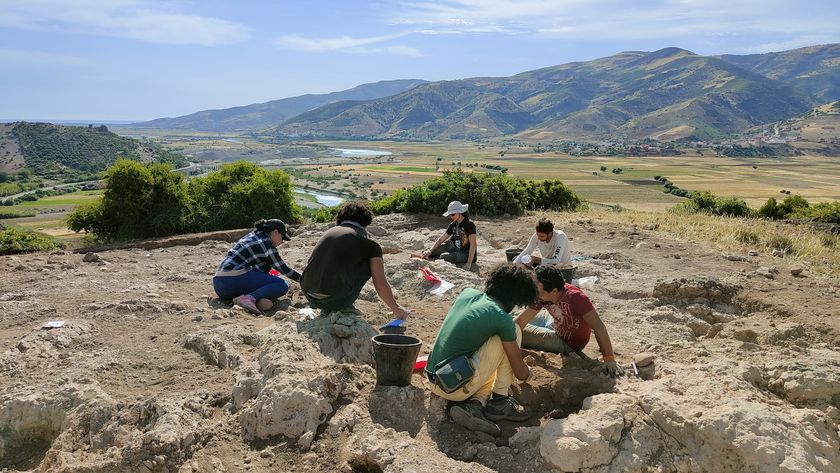March for Science: Why Are Scientists Taking to the Streets on Saturday?
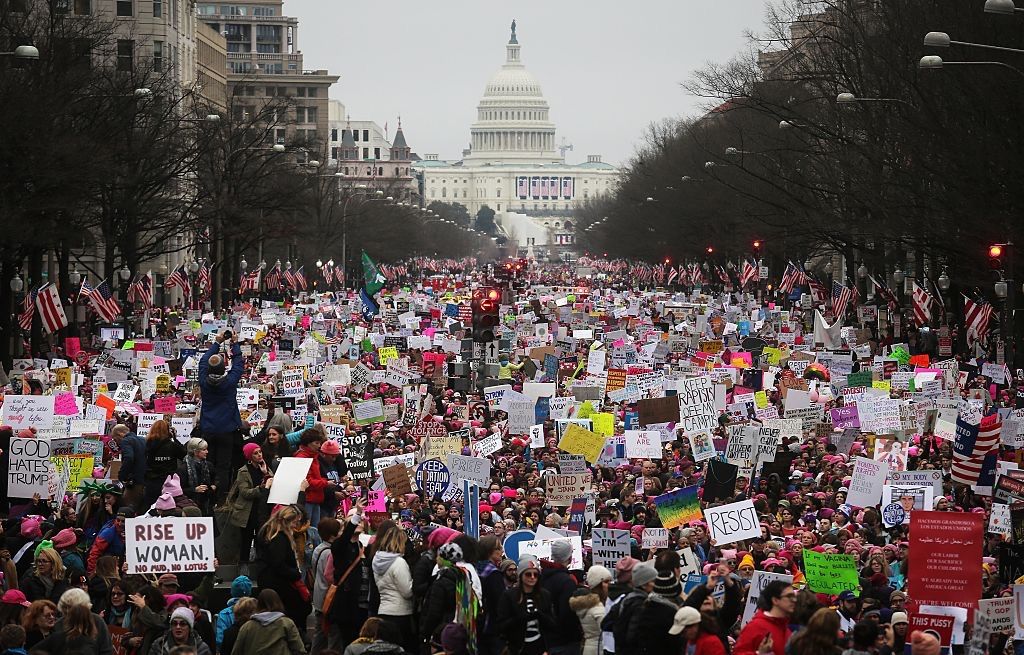
Scientists and science enthusiasts will hit the streets in cities across the globe on Saturday (April 22) to convey to the government and public alike how important science is to the health and safety of our planet's inhabitants.
"The March for Science is the first step of a global movement to defend the vital role science plays in our health, safety, economies, and governments," according to the march organizers.
While that is the broad message of the March for Science, Live Science decided to find out why individual scientists were marching, some of them with their spouses and kids. [March for Science 2017: What You Need to Know]
Here are some of the voices from the march:
Jennifer Vaughn COO of the Planetary Society
(Vaughn will be marching in Pasadena, California.)
"Our goals are engaging and empowering the world's citizens to have a real relationship with space exploration and science in general. We're a science organization. Anything that activates or gets people out there and excited to promote and think about this discipline that exists all around us but sometimes we take for granted is an opportunity to push for advancement and furthering our ultimate goals in science.
Sign up for the Live Science daily newsletter now
Get the world’s most fascinating discoveries delivered straight to your inbox.
"It's a good time to stand up and celebrate and activate the public to get more involved and develop a deeper appreciation for science, technology, engineering and mathematics."
Gretchen Goldman Research Director, Center for Science and Democracy, Union of Concerned Scientists
(Goldman will be marching in Washington, D.C.)
"I'm really concerned about the role of science in federal decision-making. Right now, we're witnessing this administration and this congress try to dismantle the very process we use that allows science to inform decisions," Goldman told Live Science.
That process, Goldman said, has a host of benefits, from keeping food safe to ensuring clean air and water, to making sure drugs are safe. "If we dismantle that process that affects everyone's public health and safety." [Neil deGrasse Tyson Warns Science Denial Could 'Dismantle' Democracy]
As for her personal reason for marching, Goldman said: "Personally, I have a toddler and so I think a lot about his future; and I want him to live in a world that values evidence and the role it plays, in giving us progress and allowing us to have the quality of life that we do."
Karl Flessa, former president of the Paleontological Society Professor of Geosciences at the University of Arizona
(Flessa is marching with his friends from the Paleontological Society in Washington, D.C.)
"I'm marching because there are a whole bunch of policy decisions that I think need to be informed by science." He said that included things like decisions on environmental protection, food safety, and research and basic science funding. "I think that advocating for evidence-based decisions is not a partisan issue," he told Live Science.
"I think there are several benefits [of marching]: I think it's the march itself that is going to highlight for the American public some of the importance of science to their lives and their livelihoods — all the science-based jobs in this country — and the importance of science education for their kids. I think the march will really help this visibility.
"I think it should catch the eye and ear of our representatives in congress and in the administration to realize how deeply felt some of these concerns are in the scientific community."
In addition, he said, the march could "increase the solidarity among scientists — that we have a common cause. We're not marching for our particular disciplines. We're marching for science overall. We're all in this together. We want to make sure the public understands the value of science."
Cristian Samper President and CEO, Wildlife Conservation Society (WCS)
(Samper will be marching in D.C. with his familiy.)
"Science is at the core of wildlife conservation. It allows us to understand how to conserve wildlife and wild places and measure the impact of our work to save them. At WCS, we march for science every day through our field work in nearly 60 nations and in our zoos aquarium in New York City," Samper said in a WCS statement.
"By marching, we aim to celebrate science, not to politicize it. While science is the fine print in all smart policy — at WCS, we want to highlight at the March for Science the importance of science to all our work. Science is behind the good news and bad news about wildlife conservation, but it has nothing to do with the fake news. Science is the antithesis of fake news.
"In 1970, more than 20 million marched on the first Earth Day. I will be honored to march with the millions who are expected to march from around the world on Earth Day 2017 in recognition of the power of science."
Collette Adkins Senior Attorney, Center for Biological Diversity
(Adkins will be marching in D.C. with her kids.)
"I really think of myself as a scientist. It's such a big part of my identity, and I've been having such a hard time coping with the new administration and from a personal level, I thought it would be good for me to have the opportunity to get inspired by other folks that share the same value sets. Important policy decisions should be based on truth and science. And I thought it would help me stay motivated and keep fighting the good fight. Beyond that, I just think it's one thing I can do to show my resistance and hopefully by folks like me making these same decisions all across the country, we can hopefully have some influence over decision-makers.
"For me, the D.C. march is going to be influenced by the fact that I'm bringing my two kids — my daughter who is 9 and my son who is 11. And they will have never participated in a march of this magnitude. They've never been to D.C., and I really hope this is a formative experience for them, one that might someday inspire them to be an activist and to stand up and advocate for causes they believe in, and just to give them some insight into the work that I do and why it's important. On a personal level, it's about sharing this value set with my children and hoping it shapes who they become. I want to accomplish having people draw the connection between science and protecting the environment with the idea that climate change is not alternative facts, and that endangered wildlife need science to survive."
Rob McDonald Lead Scientist, Global Cities, The Nature Conservancy
(McDonald will be marching in D.C.)
"It's an important event for me personally because as a scientist, I want to make sure that there is recognition in public debate and policymaking that science has a crucial role to play. Sometimes, I worry that in the public debate now there is increasing denial that there are such things as scientific facts. Policymakers will understandably and appropriately bring their values and opinions into the formation of policy, but those policies still should be informed by sound science," McDonald wrote in an email to Live Science.
"A crucial example is around the issue of climate change. The science onc limate change is clear. Ninety-seven percent of climate change scientists believe climate change is happening and is human-caused. Last year was the hottest year on record. And 16 of the 17 hottest years on record have occurred since 2000. So, while reasonable people can disagree about the appropriate policy response to climate change, debate about what the right policy is has to start with these basic facts.
"I think success is for the march to force a public discussion, in newspapers and website and cable news shows, about the value of science and why it is (and is not) always acknowledged by policymakers. I also hope the march encourages Congress to maintain funding for important science, both basic and applied."
David Evans Executive Director, National Science Teachers Association (NSTA)
(Evans will be marching in D.C.)
"Science education is what underpins science and when you look at the issues we're dealing with now around the public understanding of science and the way we use or don't use science in making decisions, it means the march is highlighting the importance of science and we're participating because science education is what underpins that.
"I'm hoping that what we get is visibility. I'm sure that's the main goal of the march organizers themselves, trying to help the public understand how fundamental science is to the way we live now.
"The kinds of issues that we have to deal with collectively are the things that will be brought out by the march. What we want to do is make sure people understand if we want our kids to understand what to do on these issues, from climate change to GMOs [genetically modified organisms], the kids in school now are going to be participating in making decisions on what we do, how we collectively live, and science education is critical in them being able to participate with that."
Rachael Beaton Postdoctoral research associate, Carnegie Observatories
(Beaton will be out of the country during the march, but helped with preparations for the march in Pasadena, California.)
"One reason we're having this science march is because science is mangled at the political level. It's really easy for the message of science and the conclusion of science to get mangled when it comes down to the average person. To me, it has to do with the fact that the average person and the average congressman don't know how science works and what scientific consensus is, and what science is as a body of knowledge. Understanding that when you get to be called a theory — that's pretty much the strongest designation that you can get in science. But, that term in vernacular means something very different. That's the kind of science literacy that is a challenge when we're trying to communicate science results to the public.
"I think the whole crowd mentality when you're all working toward something is pretty wonderful. Day to day, being a scientist, you're so deep into the minutiae of these projects. When you get to do an outreach event where you get to talk to the community or you get to participate in a movement, it adds a component to your job that you don't get to do every day. It makes me reenergized as a scientist."
The Field Museum in Chicago
"The Field Museum is proud to be participating in the Chicago chapter of the nationwide March for Science this upcoming Saturday, April 22," the museum said in a statement. "The March is a non-partisan demonstration for supporters of science to voice their passion for and commitment to the pursuit of knowledge, facts, and discovery. With overwhelming support from our own staff, volunteers, and trustees, we'll be showing up 700 strong on Saturday, with bright green shirts, giant T. rex puppets, and lots of enthusiasm in tow."
John Vandermeer Professor in the Department of Ecology and Evolutionary Biology, University of Michigan
(Vandermeer and his wife Ivette Perfecto, a University of Michigan ecologist, will march in Washington, D.C.)
"My participation is to protest the Trump administration's anti-science stance," Vandermeer said in a statement from the university. "Our world today is especially in need of rational thought to solve the urgent problems we face, and the most troubling challenge to the rational thought processes that we have relied upon since the Enlightenment is the apparent rejection of science by the Trump administration. I stand with the bulk of the world's scientists in opposing this sort of dangerous and ignorant policy."
Original article on Live Science.
p.p1 {margin: 0.0px 0.0px 0.0px 0.0px; font: 11.0px Calibri} span.s1 {font-kerning: none} p.p1 {margin: 0.0px 0.0px 0.0px 0.0px; font: 11.0px Calibri} span.s1 {font-kerning: none} p.p1 {margin: 0.0px 0.0px 0.0px 0.0px; font: 11.0px Calibri} span.s1 {font-kerning: none}

Denise Chow was the assistant managing editor at Live Science before moving to NBC News as a science reporter, where she focuses on general science and climate change. Before joining the Live Science team in 2013, she spent two years as a staff writer for Space.com, writing about rocket launches and covering NASA's final three space shuttle missions. A Canadian transplant, Denise has a bachelor's degree from the University of Toronto, and a master's degree in journalism from New York University.





